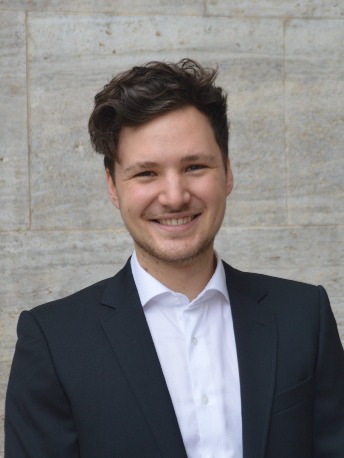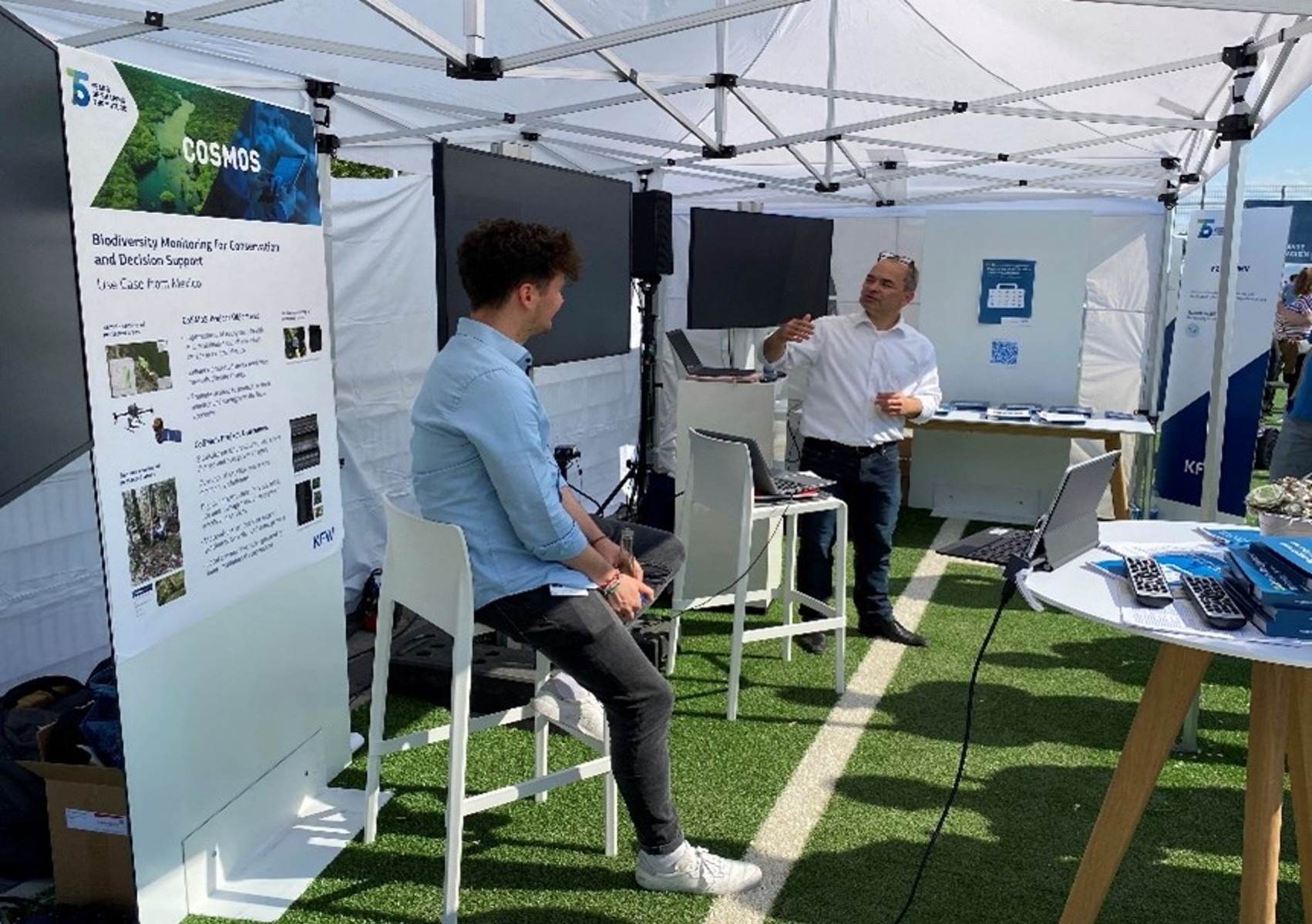Impact: Gebruik van geografische-ruimtelijke data bij internationale ontwikkelingssamenwerking

De komende weken introduceren de genomineerden voor de Ben Feringa Impact Award 2024 zichzelf en hun impactvolle onderzoek of project. Deze week: Jonas Göbel, genomineerd in de categorie 'student' voor zijn stageonderzoek naar de benutting van geografische-ruimtelijke data op het gebied van internationale ontwikkelingssamenwerking.
Wie ben je?
Mijn naam is Jonas Göbel, en voor mijn master ben ik naar Groningen gekomen. Ik ben geboren en getogen in de buurt van Frankfurt, en ik heb een bachelor in Economie en Geografie gevolgd aan de Ruprecht-Karls-universiteit.
Bij welke faculteit studeer je?
Ik studeer International Political Economy aan de Faculteit der Letteren.
Waar gaat je onderzoek over?
Mijn onderzoek richt zich voornamelijk op de benutting van geografische-ruimtelijke data op het gebied van internationale ontwikkelingssamenwerking. Op dit gebied gaat het vaak om projecten in afgelegen en kwetsbare gebieden die met name kwetsbaar zijn voor huidige en toekomstige klimaatgerelateerde risicoscenario's. Tijdens mijn stage bij de Duitse Internationale Ontwikkelingsbank (KfW) heb ik samen met mijn begeleiders gewerkt aan het genereren en verzamelen van data die de geografische locatie van projectterreinen in het zuiden van Afrika kunnen vastleggen. We hebben scholen, gezondheidsklinieken en regio's waar projecten worden gefinancierd door de KfW in kaart gebracht. De gegevens die we hebben verzameld variëren van hoogteprofielen van transmissielijnen tot huidige en toekomstige klimaatgerelateerde risico's die de infrastructuur kunnen beschadigen en risico's kunnen vormen voor individuen in de regio. Samen met mijn begeleider hebben we het verzamelen en gebruiken van geografische-ruimtelijke gegevens op andere afdelingen geïnitieerd, het idee gepresenteerd op bedrijfsevenementen en andere collega's ondersteund bij de implementatie.

Welke impact heeft je onderzoek? Hoe kan het de maatschappij helpen?
De afgelopen jaren hebben de gevolgen van klimaatverandering aanzienlijke schade aan de lokale infrastructuur in Malawi teweeggebracht, wat uitdagingen opwerpt voor het welzijn van de mensen daar. Als reactie heeft de KfW Ontwikkelingsbank, samen met andere belanghebbenden, stappen ondernomen om deze uitdagingen aan te pakken en leefomstandigheden te verbeteren door de financiering van gezondheidscentra, scholen en energie-infrastructuur te ondersteunen.
Geografische-ruimtelijke data, in combinatie met andere hulpmiddelen zoals satellietbeelden en drones, stellen ons in staat opkomende problemen bij een project op afstand te administreren, beoordelen en aan te pakken. Deze data faciliteren het maken van kaarten die uitgebreide informatie verschaffen over de actuele risico’s van een regio, het hoogteprofiel van de infrastructuur en de omvangrijke verspreiding daarvan. Door deze data samen te verzamelen en te analyseren, kunnen we zorgen voor transparantere samenwerkingen en toewerken naar de verbetering van veerkracht en duurzaamheid van infrastructuur. Geografische-ruimtelijke data dienen als een waardevol hulpmiddel in het werkelijk begrijpen van de lokale uitdagingen in Malawi in plaats van simpelweg in te grijpen en financiële ondersteuning te bieden. Deze aanpak is gunstig voor zowel internationale ontwikkelingsinstituties, als voor lokale belanghebbenden doordat de specifieke context van de regio in acht wordt genomen.
Wat was je motivatie voor het onderzoek? Wat heb je er zelf van geleerd?
Ondanks de werkervaring en kennis die ik tijdens mijn studie heb opgedaan, was het niet makkelijk om me aan te passen aan een professionele, financiële werkomgeving. Ik vroeg me af wat ik aan de projecten kon toevoegen met mijn academische achtergrond. Hoewel aardrijkskunde een relatief klein onderdeel van mijn studie was, heb ik geografische-ruimtelijke hulpmiddelen altijd als een ongelooflijk waardevol hulpmiddel gezien voor de geglobaliseerde wereld waarin we leven. Toen mijn begeleider en ik aan het programma begonnen en uitbreidden naar andere teams, heb ik heel veel geleerd over het overbrengen van mijn kennis naar een professionele setting en over hoe je anderen kunt overtuigen van een nieuw hulpmiddel. De ervaring als stagiair bij de KfW heeft mij nog enthousiaster gemaakt over de uitbreiding van data-gedreven internationale samenwerking.
Meer nieuws
-
14 februari 2026
Tumor weg, maar waar zijn de woorden?
-
19 januari 2026
Digitalisering drijft kansarme burgers soms in het nauw
